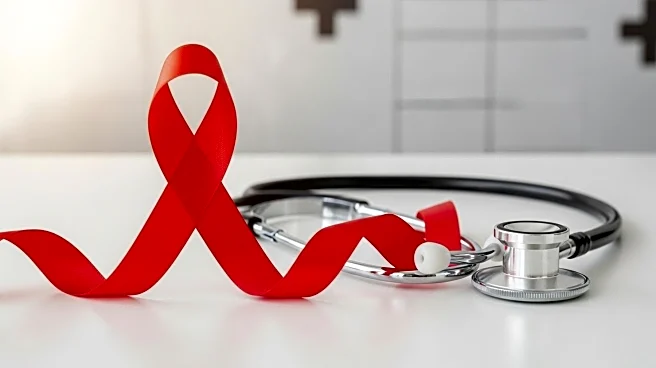What's Happening?
Republicans are proposing significant cuts to HIV prevention and treatment funding in the 2026 federal budget. The Trump administration's proposal includes eliminating the CDC's HIV-prevention division, while House Republicans seek nearly $2 billion in cuts to HIV-related funding. These proposals contrast with the Senate's plan to maintain current funding levels. The cuts could undermine the Ending the HIV Epidemic initiative, which aims to reduce HIV transmission by 2030. Advocates warn that reduced funding could lead to increased HIV cases and related healthcare costs.
Why It's Important?
The proposed cuts to HIV funding could have severe consequences for public health efforts to combat the epidemic. The CDC's HIV-prevention programs are crucial for supporting state and local health departments and community organizations. Reducing funding could lead to a rise in new HIV infections and related deaths, reversing progress made in recent years. The financial burden of increased HIV cases would likely fall on taxpayers through Medicaid. The proposals reflect broader political debates over healthcare funding and priorities.
What's Next?
The proposed budget cuts must pass both chambers of Congress and receive President Trump's approval to become law. The Senate's opposition to the cuts suggests a potential legislative battle. HIV advocates and public health experts are likely to continue lobbying against the reductions, emphasizing the long-term costs and public health risks. The outcome of this funding debate will have significant implications for the future of HIV prevention and treatment efforts in the U.S.









